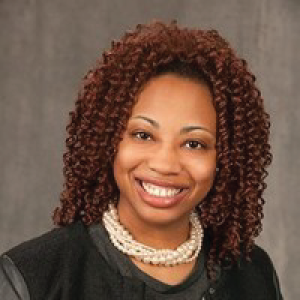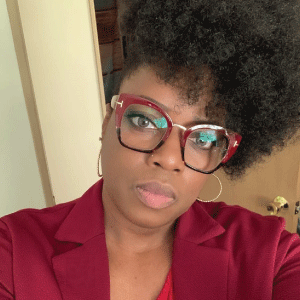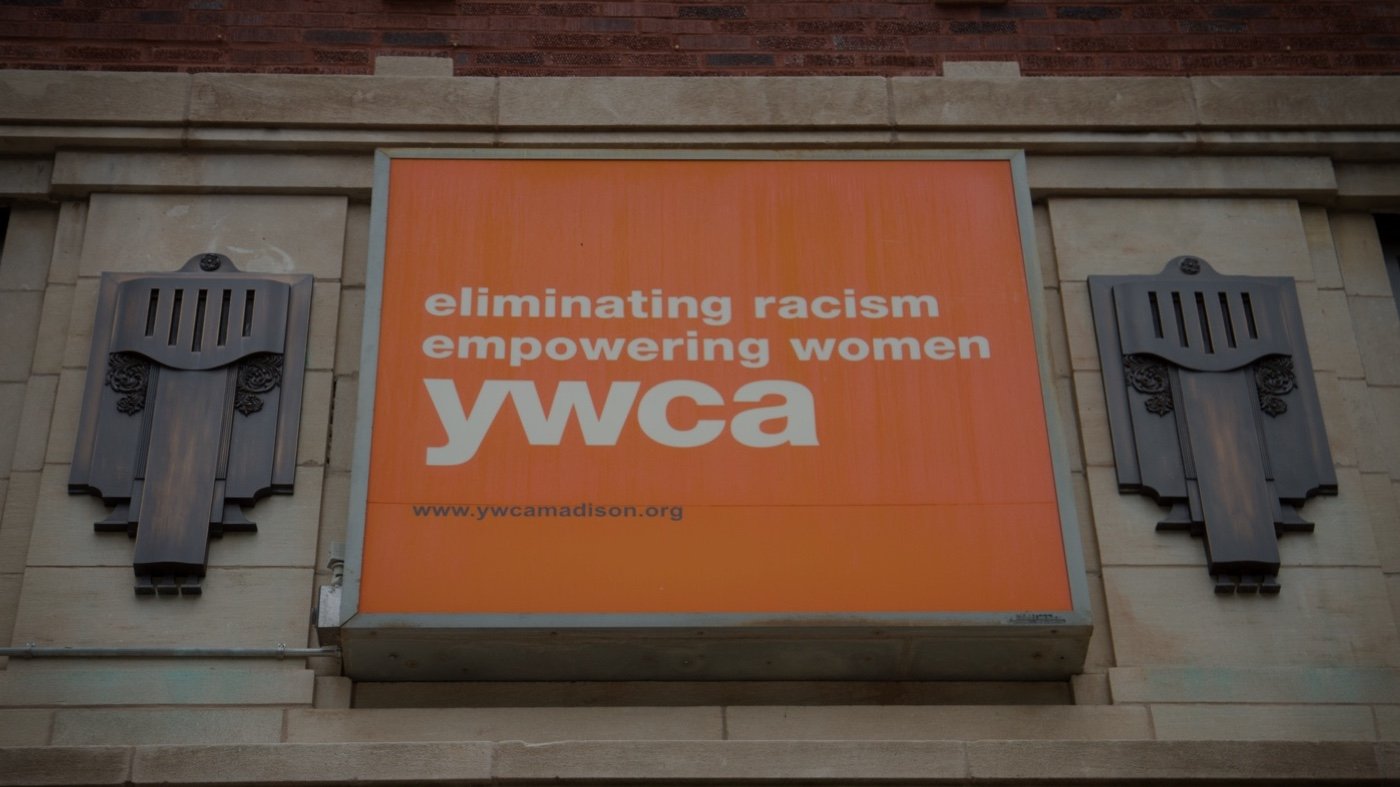Downtown Location
Our downtown location is a 12-story building conveniently located in the heart of Madison on the Capitol Square at 101 East Mifflin Street. It was formerly the historic Belmont Hotel, built in the 1920s. The largest provider of affordable housing to women in Dane County, YWCA is home to more than 450 women, children, and families each year.
Hours of Operation
Monday through Friday 8:00 a.m. to 4:30 p.m.
608.257.1436, option 2
Fax 608.257.1439
Empowerment Center
YWCA’s Empowerment Center, located at 2040 S. Park Street, provides resources to individuals seeking to find, change, or maintain a job and acquire skills to advance in the workplace. Staff and other resources are available to help with resume and cover letter writing, job application completion, and finding new job opportunities.
Hours of Operation
Open by appointment only. Please call 608.257.1436, option 3 to schedule an appointment.
Fax 608.395.2598
Accommodations
If you need an interpreter, translator, materials in alternate formats or other accommodations to access this service, activity or program, please contact Property Manager, April Elvington via email or at 608-257-1436, option 2. Please do so at least four days prior to the appointment.
Information for program participants with disabilities about their rights can be found on the City of Madison Website.
Concealed Carry Policy
Although Wisconsin law permits individuals with a valid permit to carry concealed weapons in public areas and vehicles in Wisconsin, YWCA Madison does not permit firearms or other weapons in any of its buildings. In keeping with this policy, signs posted at all YWCA Madison building and vehicle entrances state: Firearms and weapons are prohibited in this building.
Community Space Usage
YWCA Madison provides meeting space, dependent on room availability, to local organizations that share a mission and vision similar to YWCA. Due to the current global health climate, YWCA Madison is currently not open to outside organizations for community space usage.
Our Interim CEO
Gery Paredes Vásquez
Gery Paredes Vásquez (ella, tu, she, her) is a lifelong practitioner and collaborator for intersectional justice, healing and collective liberation.
She is currently serving as YWCA Madison’s Interim CEO, after six years of directing the Race and Gender department, in which role she collaborated with this beloved team and a growing community of artists, advocates, organizers, educators and practitioners in the co-creation of offerings such as the Racial Justice Series Community Series, YWCA Madison’s annual Racial Justice Summit, as well as intersectional race-based offerings such as the BIPOC Healing Justice and Co-Liberation Series. In this role, she has also provided collaborative consulting services for equity to organizations via YWCA Madison’s Creating Equitable Organizations partnership program.
Gery’s connection to YWCA Madison goes back to 2012 when she first volunteered as a facilitator for the Racial Justice series, to then become a full time associate, later a Race and Gender Equity Coordinator and Manager before becoming the Director of this same department.
Like many Latine people, Gery was born to families of mixed ethnicities and races due to colonization: Indigenous Quechua, Aymara and Guarani with Spanish. This reality shapes her personal journey of learning, unlearning and healing as well as continues to inspire her work for intersectional justice and collective liberation every day.
In the twenty years of her professional practice, Gery has collaborated with people, communities, and organizations from around the world. These experiences gave her the opportunity to co-create programs, build capacity and co-facilitate learning experiences that deliberately centered social justice with young and adult populations from a very broad range of race, ethnic, gender, socioeconomic and ideological identities in countries such as Argentina, Bolivia, Colombia, Costa Rica, Guatemala, Mexico, United States, Swaziland, Netherlands, Sweden, Spain and Italy.
Gery has served as the Co-Curricular Director of United World College in Costa Rica, presided over the International Association for Experiential Education, as well as co-founded the community organization Wayna Hilaña Yanapaña together with youth peers in her home country of Bolivia.
She is a graduate of the United World College of India, where she received a full scholarship to participate in a two-year multicultural and international residential experience centering education for peace while living and learning with two hundred peers from eighty-two countries. She received a bachelor’s degree in Interdisciplinary Social Justice Education from Prescott College, an Executive Certificate on Social Impact Strategy from the University of Pennsylvania, as well as continuing to participate in multiple community-based learning, unlearning, and practice experiences shaping her ongoing journey.
Our Staff
Abby Eigenberger
Steps to Stability CoordinatorAndrea Zea
Advancement DirectorAneesha Mitchell
DLRP CoordinatorAndrea Gaines
Residential Housing ManagerAndrea White
Steps to Stability CoordinatorAngela Borman
Accounting AssistantAngie Kier
ReceptionistApril Elvington
Property ManagerAshley Moncrief
Employment Services & Transit DirectorAurealia Johnson
Employment Services Coordinator/Case ManagerBill Baldon
Restorative Justice School Program Manager
Briana Hutton
Recruiting & Employee Resource Specialist
Brooke Page
Third Street Case ManagerCortney Kallenberger
Third Street Case ManagerDan Richardson
Senior AccountantDanielle Bassing
Volunteer & Events CoordinatorDerrick Taylor
Facilities ManagerEmily Daniels
Family Housing Stability Coordinator/Case ManagerErin Farrar
Development CoordinatorEugenia Highland Granados
Restorative Justice ManagerOpen
Facilities Director
Isaac Trussoni
Restorative Justice Intake & Community CoordinatorOpen
Housing DirectorJamie Adams
YW Transit ManagerJay Young
Marketing & Event ManagerJessica Oswald
Rapid Rehousing CoordinatorJoe Hecht
Singles Housing CoordinatorKate Perleberg
Chief Financial OfficerKatey Nelson
Operations DirectorKhong Thao
IT ManagerKiana Burnette
Restorative Justice Community Program Manager
Lauren Travis
School Restorative Justice CoordinatorLexus Anderson-Carter
EC Receptionist/Program AssistantLibby Tucci
Race & Gender Equity Practitioner – LeadMya Williams
Community Restorative Justice CoordinatorO. Clark
Family Resource CoordinatorOrion Wells
Restorative Justice CuratorRenee Reed
Shelter Case ManagerRhonda Schemm
Human Resources DirectorSam Jeschke
School Restorative Justice CoordinatorSami Clausen-Ruppert
Grants & Compliance Manager
Semaj Sconiers
Race & Gender Equity PractitionerShirin Kestin
School Restorative Justice CoordinatorSkyler Van De Weerd
Community Housing ManagerTamaha Shepherd-Jones
Family Housing Stability Coordinator/Case ManagerTaylor Raether
Donor Relations ManagerTiara Guyton
Front Desk Manager
Our Board of Directors
Officers
-

Angela Arrington
CHAIR
-

Monica Mims
VICE-CHAIR
-

Angela Bindl
TREASURER
-

Julia Stanley
SECRETARY
Members
Jihan Bekiri
Kirsten Donkle
Ginger Francis
Kingsley Gobourne
Leigh Griesbach
Jan Kittoe
Natalia Kruse
Ursula Norwood
Gloria Castillo Posada
Jen Rubin
Melissa Rubio
T.R. Williams
Brenda Yang
Key Dates in YWCA Madison History

Frequently Asked Questions
About YWCA Madison
-
The YWCA Madison has over 25 programs that fit into one of the following categories:
Advancing race & gender equity to create a more inclusive community;
Helping people improve their financial situations through job training & transportation; and
Supporting people in housing & shelter.
-
YWCA Madison provides wrap-around services that partner with people as they move towards self-sufficiency. From the infant on Third Street to teens in Restorative Justice, to the displaced homemaker looking for employment, to our eldest resident, YWCA is supporting people throughout their lifetime. YWCA takes a holistic approach to help people by addressing the root causes of poverty such as homelessness, unemployment/underemployment, and racism.
-
YWCA Madison is home to 150 women, children, and families every night. YWCA provides affordable housing through our Single Room Occupancy (dorm style) apartments for single women and the Third Street Program for single mothers with young children. In addition, YWCA provides shelter to homeless families.
-
Most YWCA Madison residents pay rent and sign a lease to live at YWCA. There are 12 units of shelter, where the families do not pay rent as YWCA Madison is part of the Dane County shelter system and provides shelter for families with minor children.
-
Thousands of people are empowered through all of YWCA Madison’s programs, from homeless families living at 101 E. Mifflin Street to people engaging in conversations about race through our Race & Gender Equity and Restorative Justice programs to riders getting to and from work on YW Transit and more.
-
Yes. Through our housing, job training and transportation services, and Racial & Restorative Justice programs, men benefit from the services we provide.
-
YWCA Madison has a diverse income stream to ensure the financial health of our organization. Each year we seek donations from community supporters, conduct fundraising events, apply for grants from public and private sources, and earn income from rent.
-
Yes. YWCA Madison is a 501(c)(3) organization and your donation to the YWCA is tax-deductible, less the value of any goods or services you receive. For example, goods or services would include a meal if you attend one of our fundraising events. We work hard to keep costs low so that more of your donation goes directly to support people in our programs.
-
YWCA once stood for Young Women’s Christian Association. However, this is a reflection of the history of YWCA and thus we only use the acronym YWCA when we refer to ourselves today.
-
When the YWCA USA was established over 160 years ago, it was founded in the Christian faith. Today, the YWCA is a 501(c)(3) non-profit and not a faith-based organization.
-
In Madison, the YWCA and the YMCA are separate non-profit entities with different missions. While YWCA focuses on eliminating racism and empowering women through housing, employment, transportation, and programs addressing race relations, the YMCA focuses on healthy living, youth development, and social responsibility.
-
No, we no longer have a swimming pool, nor do we provide fitness classes.
Contact us.
-
Downtown Location
YWCA Madison
101 E. Mifflin St.
Suite 100
Madison, WI 53703Empowerment Center
YWCA Empowerment Center
2040 S. Park St.
Madison, WI 53713 -
Contact:
Rhonda Schemm -
Please Contact:
Andrea Zea -
Please Contact:
Jay Young -
Please Contact:
Isaac Gomez -
Please Contact:
Ashley Moncrief -
Please Contact:
Jay Young -
Please Contact:
Gery Paredes Vásquez -
Please Contact:
Eugenia Highland Granados -
Please Contact:
Kong Thao -
Please Contact:
Ashley Moncrief -
Please Contact:
Danielle Bassing -
Please Contact:
Libby Tucci




